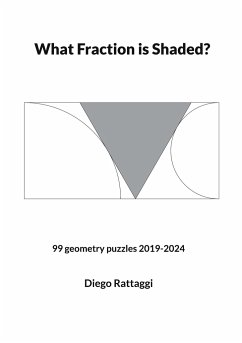
What Mathematics Can Do for You
Essays and Tips from Japanese Industry Leaders
Herausgegeben: Giga, Yoshikazu; Kobayashi, Toshiyuki
Versandkostenfrei!
Versandfertig in 6-10 Tagen
38,99 €
inkl. MwSt.

PAYBACK Punkte
19 °P sammeln!
Japan is a tiny country that occupies only 0.25% of the world's total land area. However, this small country is the world's third largest in economy: the Japanese GDP is roughly equivalent to the sum of any two major countries in Europe as of 2012.This book is a first attempt to ask leaders of top Japanese companies, such as Toyota, about their thoughts on mathematics. The topics range from mathematical problems in specific areas (e.g., exploration of natural resources, communication networks, finance) to mathematical strategy that helps a leader who has to weigh many different issues and make...
Japan is a tiny country that occupies only 0.25% of the world's total land area. However, this small country is the world's third largest in economy: the Japanese GDP is roughly equivalent to the sum of any two major countries in Europe as of 2012.
This book is a first attempt to ask leaders of top Japanese companies, such as Toyota, about their thoughts on mathematics. The topics range from mathematical problems in specific areas (e.g., exploration of natural resources, communication networks, finance) to mathematical strategy that helps a leader who has to weigh many different issues and make decisions in a timely manner, and even to mathematical literacy that ensures quality control. The reader may notice that every article reflects the authors' way of life and thinking, which can be evident in even one sentence.
This book is an enlarged English edition of the Japanese book What Mathematics Can Do for You: Essays and Tips from Japanese Industry Leaders. In this edition we have invited the contributions of three mathematicians who have been working to expand and strengthen the interaction between mathematics and industry.
The role of mathematics is usually invisible when it is applied effectively and smoothly in science and technology, and mathematical strategy is often hidden when it is used properly and successfully. The business leaders in successful top Japanese companies are well aware of this invisible feature of mathematics in applications aside from the intrinsic depth of mathematics. What Mathematics Can Do forYou ultimately provides the reader an opportunity to notice what is hidden but key to business strategy.
This book is a first attempt to ask leaders of top Japanese companies, such as Toyota, about their thoughts on mathematics. The topics range from mathematical problems in specific areas (e.g., exploration of natural resources, communication networks, finance) to mathematical strategy that helps a leader who has to weigh many different issues and make decisions in a timely manner, and even to mathematical literacy that ensures quality control. The reader may notice that every article reflects the authors' way of life and thinking, which can be evident in even one sentence.
This book is an enlarged English edition of the Japanese book What Mathematics Can Do for You: Essays and Tips from Japanese Industry Leaders. In this edition we have invited the contributions of three mathematicians who have been working to expand and strengthen the interaction between mathematics and industry.
The role of mathematics is usually invisible when it is applied effectively and smoothly in science and technology, and mathematical strategy is often hidden when it is used properly and successfully. The business leaders in successful top Japanese companies are well aware of this invisible feature of mathematics in applications aside from the intrinsic depth of mathematics. What Mathematics Can Do forYou ultimately provides the reader an opportunity to notice what is hidden but key to business strategy.












